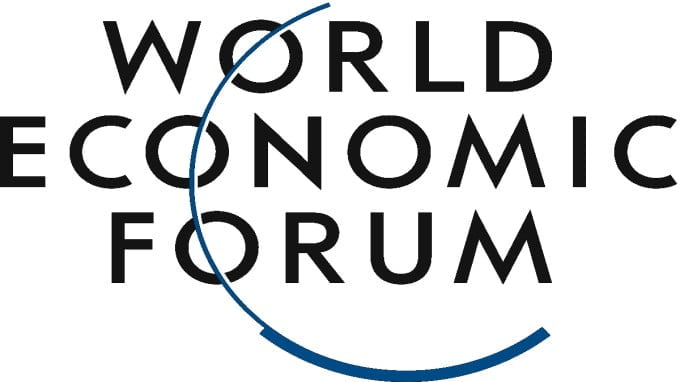Israel Lobby Pays the Political Piper
In this age of rancorous hyper-partisanship, getting members of Congress to agree on anything beyond the naming of a post office is a challenge. Yet in late April, all 100 members of the U.S. Senate signed a tough letter to the U.N. Secretary General, demanding that the organization end its “unwarranted attacks” on Israel’s human rights record.
Three months earlier, members of the House voted overwhelmingly to condemn a U.N. Security Council resolution critical of Israel’s relentless expansion of settlements on occupied lands. Like dozens of other Democrats, House Minority Whip Steny Hoyer of Maryland blasted President Obama for abstaining from the U.N. vote, saying it “sent the wrong signal to our ally Israel.” In the Senate, leading progressives like Elizabeth Warren and Bernie Sanders offered no support for President Obama, either.
Their votes and rhetoric did not simply reflect public opinion. Although Americans sympathize with Israel far more than the Palestinians, two-thirds of adults surveyed in in 2015 said the United States should not take sides in the Middle East conflict. Fewer than half say they consider Israel an ally.
Those congressional actions instead illustrated the power of the pro-Israel Lobby, a highly organized and well-funded coalition that works to give Israeli leaders freedom to operate with unquestioned U.S. diplomatic, economic and military support. Its influence helps account for the quarter trillion dollars in aid (adjusted for inflation) that the United States has given Israel since 1948.
When it comes to influencing American politics, Russia runs far behind highly motivated supporters of Israel. President Obama experienced that first hand when Prime Minister Benjamin Netanyahu, representing a state of just 8.6 million people, received rousing, bipartisan acclaim in no fewer than three addresses before Congress and nearly blocked approval of the Iran nuclear deal, perhaps the signature foreign policy initiative of Obama’s administration.
The pro-Israel Lobby has been the subject of much informal comment and a critical academic study by two of America’s most distinguished political scientists, John Mearsheimer and Stephen Walt. Harvard law professor Alan Dershowitz, an ardent disparager of their work, recently offered a backhanded acknowledgement of its thesis during a talk to an Orthodox synagogue in affluent Scarsdale, New York:
“People write a book called the Israel lobby and complain that AIPAC [American Israel Public Affairs Committee] is one of the most powerful lobbies in Washington. My response to that is, that’s not good enough. We should be the most powerful lobby in Washington. . . . We are entitled to use our power. We have contributed disproportionately to the success of this country. . . . We are a very influential community. We deserve our influence.”
Contrary to the implication of his remarks, however, AIPAC and similar organizations do not comprise an ethnic Jewish lobby, though major Jewish organizations are primary constituents. Many U.S. Jews either question Israeli government policies or have little interest in promoting them.
A 2013 Pew survey found that only 30 percent of American Jews were “very attached” emotionally to Israel, and a substantial plurality believed that continued building of Jewish settlements hurts Israel’s security. A large majority of Jews voted for President Obama, despite his strained relations with the Israeli government. Most American Jews also supported his nuclear deal with Iran, in defiance of most pro-Israel organizations.
Further reflecting the pro-Israel lobby’s political rather than ethnic focus, it derives much support from Christian Zionists, some of them outright anti-Semites, who believe that the return of Jews to Israel foreshadows the Second Coming of Christ.
The pro-Israel camp today features even the likes of White House counterterrorism adviser Sebastian Gorka, “despite his controversial ties to allies of the Nazis,” and Austria’s Freedom Party, “a movement of anti-immigrant, right-wing nationalists founded in part by former Nazis.”
Follow the Money
Unlike most other foreign lobbies, the pro-Israel lobby draws much of its strength from grass-roots support. With little organized opposition, it can influence Congress more readily than better-funded business lobbies that face stiff competition. However, the single biggest source of its power is not voters — only a tiny percentage make Israel their top political priority — but campaign funds.
In a revealing comment, Stephanie Schriock of Emily’s List confessed last year, “the money … is a big piece of this story and cannot be overlooked at all.”
“I have written more Israel papers that you can imagine,” she explained. “I’m from Montana. I barely knew where Israel was until I looked at a map, and the poor campaign manager would come in, or the policy director, and I’d be like, ‘Here is your paper on Israel. This is our policy.’ We’ve sent it all over the country because this is how we raise money. … This means that these candidates who were farmers, school teachers, or businesswomen, ended up having an Israel position without having any significant conversations with anybody.”
Hillary Clinton’s pandering to the pro-Israel lobby during the 2016 election — promising AIPAC that she would take relations with Israel “to the next level” and that she would meet with Prime Minister Benjamin Netanyahu during her first month in office — reflected her financial dependence on pro-Israel funders. Chief among them was billionaire donor Haim Saban, a hawkish Israeli-American who famously said, “I’m a one-issue guy, and my issue is Israel.”
New Yorker correspondent Connie Bruck reported that Saban, speaking at a 2009 conference in Israel, described the “three ways to be influential in American politics” as donating to political parties, creating think tanks, and buying up influential media.
“In 2002,” she observed, “he contributed seven million dollars toward the cost of a new building for the Democratic National Committee — one of the largest known donations ever made to an American political party. That year, he also founded the Saban Center for Middle East Policy at the Brookings Institution, in Washington, D.C. He . . . tried to buy Time and Newsweek, . . . acquired Univision in 2007, and he has made repeated bids for the Los Angeles Times.”
Mother Jones reported that “After the launch of the Saban Center, the billionaire began pouring more and more of his fortune into Israeli causes. He donated $10 million to support the Friends of the Israel Defense Forces. . . . He also made seven-figure gifts to the American Israel Public Affairs Committee, the hawkish Israeli lobbying group.”
Saban, who was invited to stay overnight in the Lincoln bedroom at the White House during Bill Clinton’s presidency, takes credit for helping launch Hillary Clinton’s run for that office as early as 2004. Over the years he hosted several lavish fundraisers for her, including a dinner in 2016. With an entry price of $100,000 per couple, it raised more than $5 million for Clinton’s campaign. Saban and his wife gave more than $10 million to a super-PAC that supported her as well.
And those donations don’t include the $7 million paid by the Saban Family Foundation to the Clinton Foundation during Hillary’s four-year stint in the Obama administration, the $30 million more that it pledged, the $5 million donation to the Clinton Library, or the $250,000 fee paid to Bill Clinton for a 15-minute promotional event in 2015.
The Republican Purse
As Israel pursues ever more extreme policies grounded in ethnic and religious nationalism, the pro-Israel lobby has become increasingly aligned with the Republican Party.
A recent national poll showed sympathy for Israel falling 10 points among Democrats to 33 percent from April 2016 to January 2017. In contrast, a near-record 74 percent of Republican now support Israel. Similarly, a Brookings poll last fall found that just over half of Democrats think that “the Israeli government has too much influence” in the United States, compared to just over a quarter of Republicans.
Republicans, who traditionally looked mainly to big oil, finance, real estate and other business sectors for campaign cash, increasingly rely on billionaires with a passion for Israel, such as Wall Street hedge fund owner Paul Singer, Florida auto dealer Norman Braman, casino mogul Sheldon Adelson, and Hobby Lobby founder David Green (a Christian Zionist).
South Carolina Sen. Lindsey Graham, mulling over a potential presidential run in 2015, crassly told a reporter, “If I put together a finance team that will make me financially competitive enough to stay in this thing . . . I may have the first all-Jewish cabinet in America because of the pro-Israel funding. [Chuckles.] Bottom line is, I’ve got a lot of support from the pro-Israel funding.”
Graham earned that support the usual way — by promising to put Israel first. During an obligatory visit to Jerusalem the previous December, Graham, the ranking Republican on the Foreign Appropriations Subcommittee, promised Netanyahu that “Congress will follow your lead” on imposing economic sanctions against Iran.
The most notable among the pro-Israel GOP mega-donors is Sheldon Adelson. Blurring the lines between American supporters and Israeli leaders, Adelson also spent millions to buy an election for the American-educated Israeli Prime Minister Benjamin Netanyahu, head of the right-wing Likud party.
Adelson, an ideological ally of Netanyahu, reportedly called the Palestinians “an invented people” whose “purpose … is to destroy Israel,” and advocated vaporizing Tehran if necessary to prevent it from developing nuclear weapons. Adelson captured the Republican Party’s attention in 2012 by contributing an astonishing $150 million to conservative candidates in that election, including Newt Gingrich and Mitt Romney.
Romney, who promised to move the U.S. embassy to Jerusalem “if Israel’s leaders thought that a move of that nature would be helpful to their efforts,” also won the favor of Netanyahu’s closest political adviser, the American-born Ron Dermer.
Dermer also liked Gingrich. As a young man, before taking Israeli citizenship, Dermer helped the House Speaker promote his 1994 “Contract With America.”
Dermer became Israel’s ambassador to Washington in 2013. The following year, in a blatant violation of diplomatic protocol, he attended a series of GOP candidate screening sessions held by Adelson in Las Vegas, which became known as the “Adelson primary.”
The same year, Ambassador Dermer publicly endorsed Netanyahu’s reelection as prime minister, for which he was reprimanded by Israel’s Civil Service Commission. He then went on in 2015 to arrange the infamous invitation from Republican leaders to Netanyahu to address Congress on the perils of dealing with Iran, a speech that was arranged without consulting the White House.
Onward with Donald Trump
Through Donald Trump’s son-in-law Jared Kushner, a major contributor to AIPAC, Dermer influenced the Republican candidate’s tough speech to that organization during the 2016 campaign. AIPAC attendees cheered when Trump applauded the end of President Obama’s administration and called him “maybe the worst thing to ever happen to Israel.”
Adelson soon endorsed Trump in an email to dozens of Republican Jewish donors, saying “he will be a tremendous president when it comes to the safety and security of Israel.” Playing the odds shrewdly, Adelson donated $35 million or more to the Trump campaign.
Israel and its U.S. supporters have since discovered, like everyone else, that Trump is mercurial and not easily managed. After swearing fealty to the Jewish state during the campaign, he has put the brakes on his promise to move the U.S. embassy to Jerusalem, called for restraint on further building of settlements, and met with Palestinian President Mahmoud Abbas.
On the other hand, he appointed the most right-wing, pro-settlements ambassador in history, and will make Israel the second foreign visit of his presidency, just after Saudi Arabia.
Far more important to the Netanyahu government, and to its neoconservative supporters in the United States, is the fact that Trump has surrounded himself with anti-Iran hardliners. He himself has falsely called into question Iran’s compliance with the nuclear agreement, contrary to the State Department’s own certification.
As Brookings analyst Suzanne Maloney commented recently, “Donald Trump has the Islamic Republic of Iran in his sights . . . neither restraint nor continuity on Iran is really in the offing. . . . Trump has elevated a national security team that shares an Iran-centric interpretation of the problems that plague the Middle East and threaten vital American interests there. . . . The Trump administration has begun to replace accommodation with confrontation as the guiding principle of U.S. policy toward Tehran, seeking to counter Iran through a multi-front campaign of diplomatic, economic, and military pressure.”
No one, presumably including Trump himself, can predict where this hostility will lead. But the hard-liners in Israel and the United States who lost out to President Obama on Iran — their first significant defeat in many years — are back in the saddle. Never count the pro-Israel lobby out.
By Jonathan Marshall
Source: Consortium News







